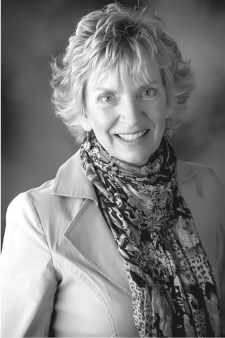The Shore Girl (25 page)

Of course clippings in newspapers and law journals are just scattered bits. They don't really tell the story. There's no mention, for example, of a little girl alone on a motel bed, or of the mother who left her there.
Harmony doesn't know what I know. How could she? I was so small. I had no business remembering the smell in that sad room or that too-big bed or that flashing neon sign or that blood on her face. I was two years old and locked in that room. When she came back for me, we drove through the black night, the van's front end screeching and shaking.
William Sacks, the circuit judge, cut through this family like a knife.
We got a different van somewhere. My grandfather was a regular provider. Sometimes I'll lie on the Judge's bed and close my eyes and try to picture the man my grandfather might have been. How could he love his little daughter when she was not his own? He was a man too wounded to heal himself.
I imagine my mother, trying to please a father who can't bear to look at her, and pleasing a father who does. And I imagine a mother named Harmony who kept me before she finally left me to grow on my own; and a grandfather who gave me a home to grow in.
* * *
Joey will be here by Saturday. He'll barge through the door, halting before we collide, and we'll study each other, shyly at first, taking in the changes, his new height and filled-out shoulders, his fading scar on the clear, smooth skin of his forehead. And he'll lift me high and twirl me around, to prove to me how strong he's become, and when he puts me back down I will feel dizzy with the extraordinariness of it. We'll walk down into the woods out back and sit on a moss-covered log, and Joey will take a flat piece of green grass between his thumbs and blow it like a foghorn. Something to the side will catch his eye, and it will be Harmony's Tree, charred and black, but we won't speak of it. We'll pluck Indian paintbrushes out of the rock and wrap them together with wild twine. In the afternoon, we'll drive to the cemetery in Joey's rickety car and place the flowers on their graves, the Judge and Mrs. Nielsen's.
When it's evening, after I've blown out my candles, Joey will prowl around the kitchen and get in the way and eat another piece of cake. Aunt Vic will call, to wish me a happy birthday, and she'll say her feet are killing her and her wait-ressing days are over. She'll tell me her psychic said she should get herself a bloodstone and a piece of hematite to ward against harm.
And Jake will call, too, because it's my birthday, and I will see his face soften when he thinks of her. And when he says goodbye, he says
love you
, and I say it back, and it's true. When it's dark, after Joey and I have put away the dishes, we'll sit side by side on the porch and breathe in the smells of summer all around. Joey will pull out his Wintergreens from somewhere deep in the pocket of his baggy jeans. He will carefully unfold the crinkled wrapping and pass one to me before popping another between his lips.
We'll look up at the stars, and I'll see them as beacons lighting her dark road.
ACKNOWLEDGEMENTS
Thanks are due to the Alberta Foundation for the Arts and to the Brenda Strathern Writing Prize for financial assistance in completing this book.
Prairie Fire
published an earlier version of “Jake” and
CBC
Anthology
produced a Rebee story for
CBC
Radio. Thank you to the editors.
With much gratitude to everyone at NeWest Press, especially Andrew Wilmot, designer Natalie Olsen, and my wise and gentle editor, Anne Nothof. My heartfelt thanks goes to Rosemary Nixon, Aritha van Herk, Nicole Markotic , Annabel Lyon and Eunice Scarfe for their inspiration and early encouragement. Special thanks to my writing buddies, Kari Strutt, Heather Ellwood, Michael Davie, Lisa Willemse, and Cathy Jewison, for keeping me at my desk. I owe so much to my parents, Irma and Louis, my dearest sisters, Judy and Brenda, and my forever friends, Brenda and Pat.
, Annabel Lyon and Eunice Scarfe for their inspiration and early encouragement. Special thanks to my writing buddies, Kari Strutt, Heather Ellwood, Michael Davie, Lisa Willemse, and Cathy Jewison, for keeping me at my desk. I owe so much to my parents, Irma and Louis, my dearest sisters, Judy and Brenda, and my forever friends, Brenda and Pat.
Deepest love and gratitude to Breanna and Megan, whose tender love fills me, to Craig, for being family in all good ways, and to Jim, for being what matters most.
FRAN KIMMEL
was born and raised in Calgary, Alberta. After graduating from the University of Calgary with a degree in Sociology, she worked an eclectic mix of jobs including youth worker, career counsellor, proposal writer, and a ten-year stint as a
VP
for a career consulting firm. Fran's stories have appeared in literary journals across Canada and have twice been nominated for the Journey Prize. Fran currently lives in Lacombe with her husband and overly enthusiastic silver Lab. This is her first novel.

